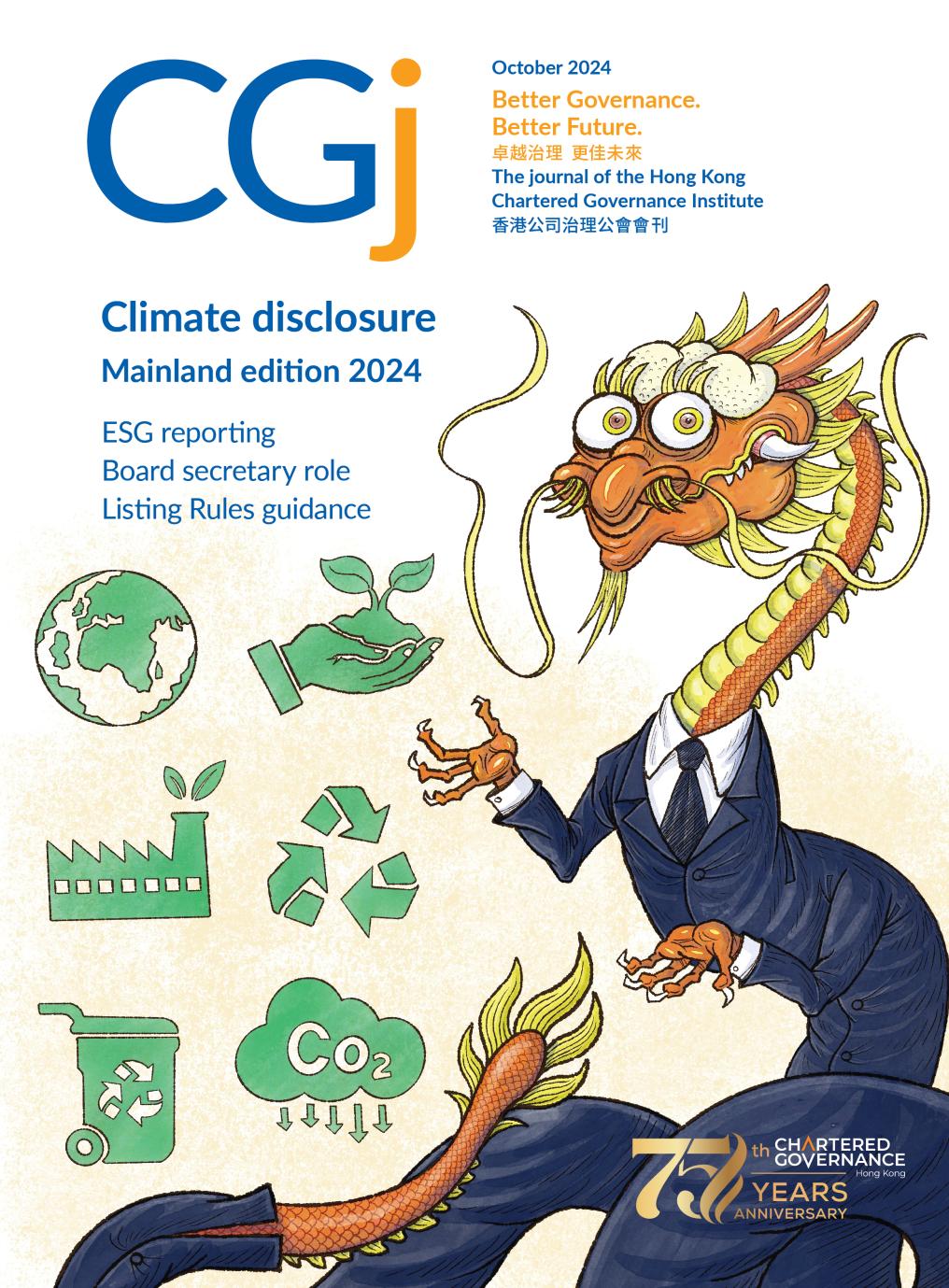Before I turn to the contents of this month’s edition of your journal, I would like to thank everyone who contributed to our latest Corporate Governance Conference, held on 20 September at the JW Marriott Hotel Hong Kong. The conference will be reviewed in the next edition of this journal so I won’t go into detail about the event here, but I would like to take this opportunity to express heartfelt thanks to the many people involved in making our flagship biennial event such a success.
This month’s CGj is our annual edition dedicated to developments in the Chinese mainland. We keep a close eye on developments across the border year round of course, but once a year we do a deeper dive into the issues at the top of the agenda for our members, affiliates and stakeholders living and working in the Chinese mainland.
Our cover story reviews the two roundtable meetings on ESG reporting and climate disclosure practices held in Beijing and Shanghai earlier this year. In addition, this edition features interviews with two board secretaries working in the Chinese mainland who successfully gained the Institute’s professional qualifications to develop their career. You can read about the challenges they face and their aspirations as peer governance professionals in this month’s In Conversation article.
I leave you, therefore, to another highly useful edition of CGj, but, before I go, I would like to highlight a very important debate now ongoing in Hong Kong with significant implications for our profession. I am referring to the reforms proposed by Hong Kong Exchanges and Clearing Limited (HKEX) in its Consultation Paper on Review of Corporate Governance Code and Related Listing Rules.
As a governance institute, we agree with the aims of these reforms – Hong Kong’s future as an international financial centre will be closely related to how successful we are in maintaining high standards of governance in our market. Nevertheless, feedback from our members has highlighted some of the challenges they would face if the proposals are implemented without more thought being given to their compliance implications.
I urge CGj readers to look at our submission to the consultation, available on the Submissions page of our website, to stay current with this important debate. While the submission backs many of the reform proposals, it highlights some (in particular those relating to director independence) where further guidance, training and longer transitional periods might need to be given to enable listed companies to better adapt to the new regime.
We support mandating director training to enhance market quality and, in this connection, we are assembling training materials on the five subject areas identified in the HKEX consultation for launch by the end of the year.
Our consultation submissions work has been unusually busy this year. You can catch up with our work in this area via the Submissions page on our website. In addition, we also responded to the 2024 Policy Address Public Consultation – suggesting among other things, the establishment of a dedicated think-tank focused on attracting international investors to Hong Kong’s IPO and broader financial markets. This work is a crucial part of the value our Institute brings both to our profession and to the Hong Kong and Chinese mainland markets, and it enables us to contribute directly to shaping the future environment in which governance professionals will work.



